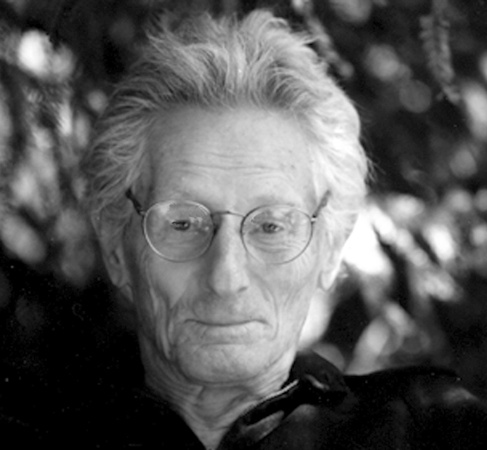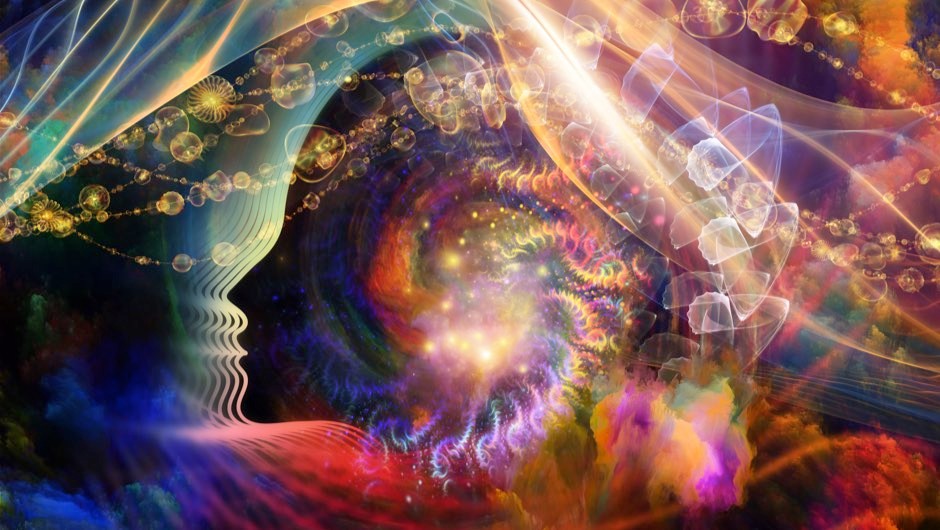Altered States of Consciousness: A Journey Beyond the Ordinary
Have you ever experienced a state of mind that feels different from your everyday consciousness? Maybe during a vivid dream, a deep meditation, or under the influence of a psychedelic substance? These altered states of consciousness can be fascinating, mysterious, and even transformative experiences that offer a glimpse into the vast potential of the human mind.
In this blog post, we will explore the concept of altered states of consciousness, their various forms, and their potential benefits and risks. Whether you are a seasoned explorer of the inner realms or simply curious about the human mind’s vast possibilities, this post will provide a valuable guide to this fascinating topic.
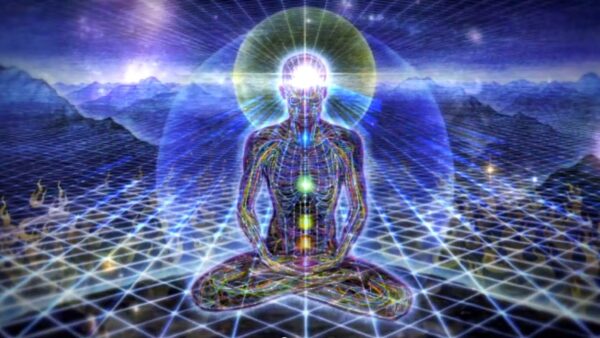
What are Altered States of Consciousness?
Altered States of Consciousness are a fascinating topic that has captivated people for centuries. This refers to any state of mind that is different from the usual waking state, where our awareness and perception of the world around us are altered. Such states can be achieved through various means, including meditation, hypnosis, sensory deprivation, and psychedelic substances.
One of the most common ways to enter an altered state of consciousness is through meditation. Meditation is an ancient practice that involves clearing the mind of distractions and focusing on a particular object or idea. This can lead to a state of deep relaxation, heightened awareness, and an altered perception of time and space. Different meditation techniques can produce different altered states, and practitioners may use these states to achieve various goals, such as increased creativity, spiritual insight, or stress reduction.
Hypnosis is another method of inducing an altered state of consciousness. Hypnosis involves guiding an individual into a trance-like state, where their attention is focused on specific suggestions or ideas. The person being hypnotized is still aware of their surroundings, but their consciousness is focused inward, and they may experience feelings of deep relaxation, heightened suggestibility, and altered perceptions.
Sensory deprivation is another way to induce an altered state of consciousness. This involves removing all external stimuli, such as light, sound, and touch, and can lead to a state of deep relaxation and altered perception. Sensory deprivation tanks, or isolation tanks, are a popular method of achieving this state. The individual floats in a tank filled with water that is heated to body temperature, and they wear earplugs to block out external noise. This can lead to a sense of weightlessness and a feeling of being completely disconnected from the outside world.
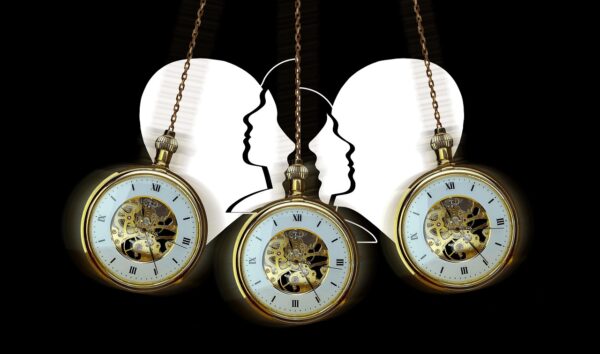
Psychedelic substances such as LSD, psilocybin mushrooms, and ayahuasca are also known to induce altered states of consciousness. These substances can alter perception, thinking, and emotions and can produce intense visual and auditory hallucinations. They have been used for centuries by various cultures for spiritual and religious purposes, and many people report profound spiritual experiences while under their influence.
Overall, altered states of consciousness are fascinating and can provide valuable insights into the workings of the human mind. They can be achieved through various means, and practitioners have been using these states to achieve spiritual, creative, and therapeutic goals for centuries. However, it is important to approach these states with caution and respect, as they can also be potentially dangerous and have negative effects on mental health if not used responsibly.
What are Altered States of Consciousness?
There are many ways to alter one’s state of consciousness, and these can vary greatly from person to person. Here are a few common types of altered states of consciousness:
Meditation: Meditation is a technique used to achieve a relaxed state of mind and improve mental clarity. By focusing on one’s breath or a specific object, one can achieve a heightened state of awareness and tranquility.
Hypnosis: Hypnosis is a technique used to induce a trance-like state in which the subject is more susceptible to suggestion. This can be used to treat a variety of issues, such as anxiety and addiction.
Psychedelic substances: Psychedelic substances, such as LSD and psilocybin mushrooms, can alter one’s perception of reality, leading to a range of experiences, from euphoria to anxiety.
Near-death experiences: Near-death experiences are often described as a feeling of leaving one’s body and traveling through a tunnel toward a bright light. While controversial, many people who have had a near-death experience report a profound sense of peace and connectedness.
Sleep and dreaming: Sleep and dreaming are also considered altered states of consciousness. During REM sleep, the brain experiences a level of activity similar to that of waking consciousness, and dreams can be vivid and surreal.
Sensory deprivation: Sensory deprivation involves removing all external stimuli, such as sight and sound, in an attempt to alter one’s state of consciousness. This can lead to a range of experiences, from relaxation to hallucinations.
It is important to note that while these methods can induce altered states of consciousness, they can also be potentially dangerous if not used responsibly and under the guidance of a trained professional.
Overall, altered states of consciousness offer a unique perspective on the nature of reality and the human experience, and can provide insight into the workings of the mind and the world around us.
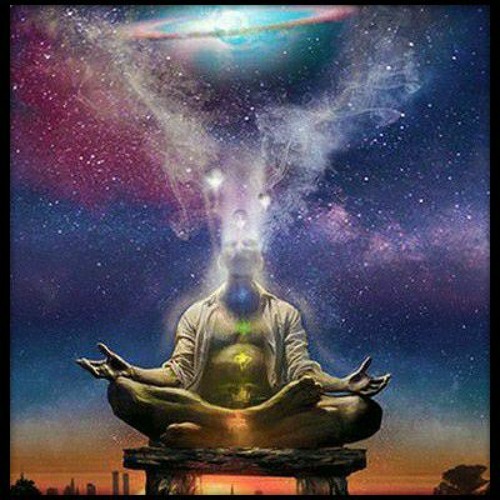
Benefits and Risks of Altered States of Consciousness
Benefits and risks of altered states of consciousness have been debated for centuries. On the one hand, altered states can be used to achieve spiritual enlightenment, increase creativity, and promote healing. On the other hand, they can also be dangerous and potentially harmful if not used responsibly.
One of the main benefits of altered states of consciousness is their ability to provide new insights and perspectives. When our normal ways of thinking and perceiving the world are altered, we can see things from a new and fresh angle. This can lead to increased creativity and problem-solving abilities.
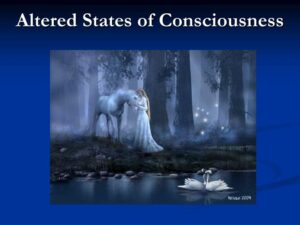
Altered states can also be used for spiritual growth and healing. Many spiritual traditions use altered states of consciousness to connect with higher powers or achieve a deeper understanding of the universe. Practices such as meditation, prayer, and shamanic journeying can induce altered states that help individuals achieve greater spiritual insight and connection.
Additionally, altered states of consciousness have been used to treat a variety of physical and mental health conditions. For example, certain forms of meditation and mindfulness practices have been found to reduce stress, anxiety, and depression. Psychedelic substances such as psilocybin and LSD have shown promise in treating conditions such as PTSD, depression, and addiction.
However, it is important to recognize that altered states of consciousness can also have risks and potential negative effects. For example, some individuals may experience intense fear or paranoia when using certain substances or practices. Others may become physically or psychologically dependent on them.
Moreover, altered states can also lead to dangerous behaviors and decision-making. Individuals may become more prone to risky behaviors such as driving under the influence or engaging in unsafe sexual practices. In some cases, altered states can lead to psychotic breaks or other serious mental health issues.
Therefore, it is crucial that individuals who choose to explore altered states of consciousness do so in a responsible and informed manner. This includes researching the potential risks and benefits, seeking guidance from qualified professionals, and using caution and moderation in their use.
Altered states of consciousness can provide numerous benefits for personal growth, creativity, and healing. However, they can also be dangerous and potentially harmful if not approached responsibly. By understanding the potential risks and benefits and using them in a safe and informed way, individuals can explore altered states of consciousness in a manner that promotes their personal growth and wellbeing.

Altered states of consciousness can be a fascinating and powerful experience for those who seek them out. They can provide a greater understanding of ourselves and the world around us, as well as spiritual and personal growth.
However, it is important to approach them with caution and to be aware of the potential risks involved, including physical and psychological harm. It is important to have a clear intention and to seek out guidance from experienced practitioners or teachers.
Ultimately, the decision to explore altered states of consciousness is a personal one, and it is up to each individual to decide if and how they want to pursue them.
